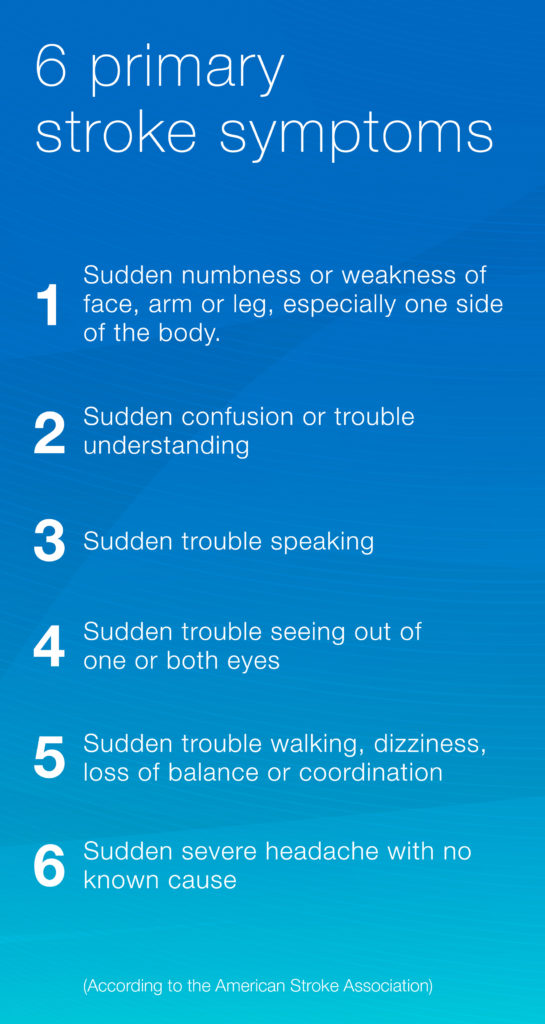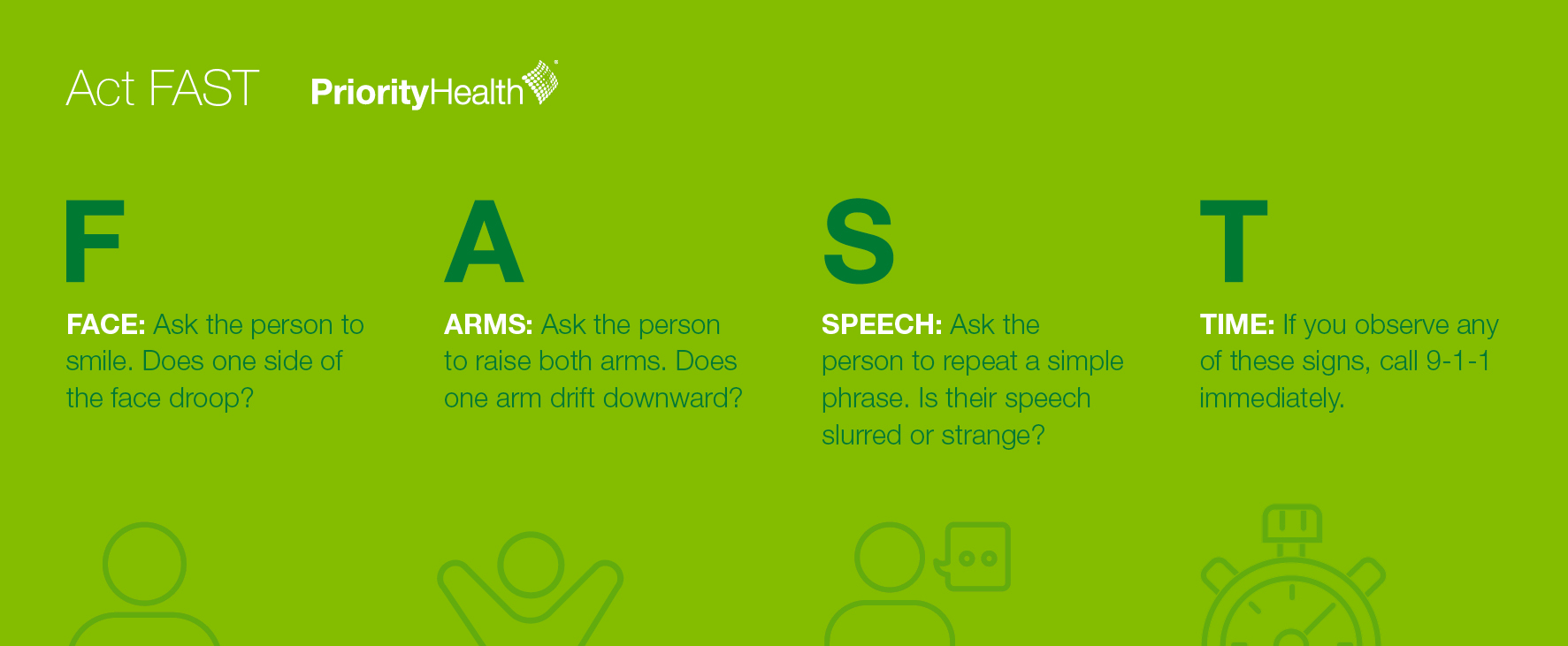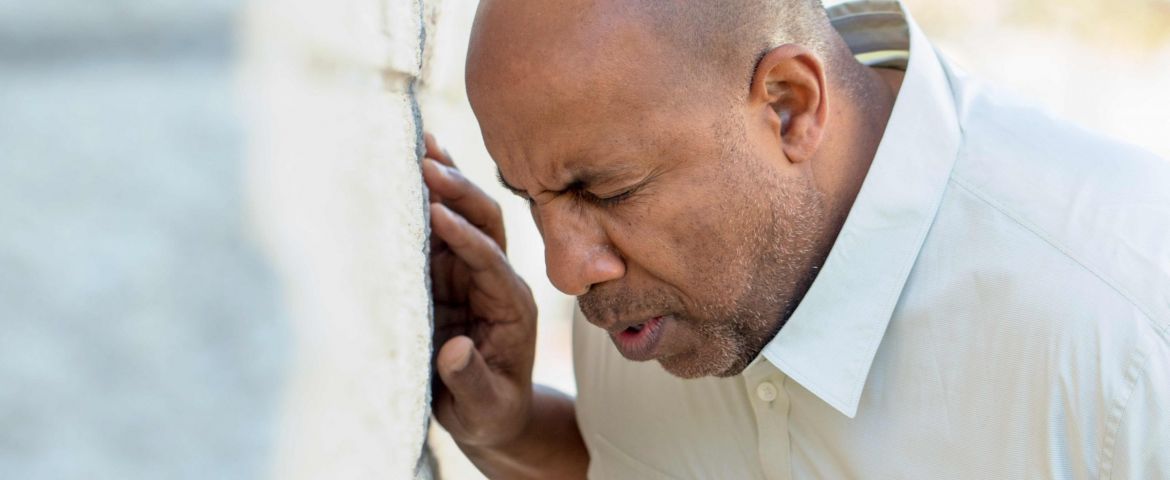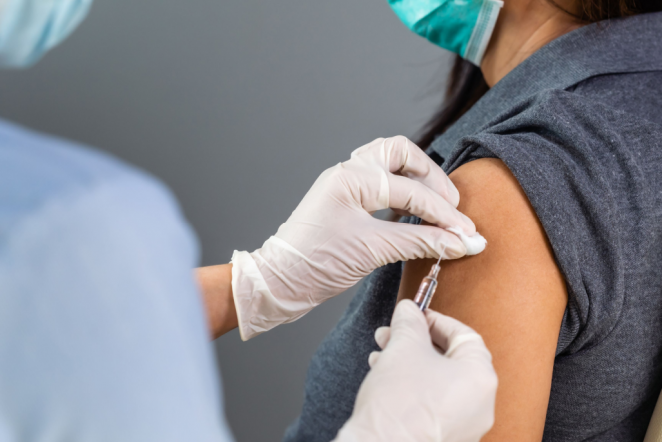Having a stroke is hard to imagine for many of us, but like most medical emergencies, it’s better to be prepared and be able to recognize the warning signs of a major issue. When a stroke does occur, it’s important to seek help right away. It’s always the right time to educate ourselves about the signs of a stroke, and early detection can save your life or the life of a loved one.
Strokes occur when oxygen and nutrients aren’t getting to your brain because the flow of blood is either interrupted or reduced. There are three types of strokes: Ischemic, Hemorrahgic and Transient Ischemic Attack (TIA). Ischemic strokes are caused by a clot and Hemorrhagic strokes are caused by a rupture. Transient Ischemic Attack (TIA), also known as a “mini stroke,” is caused by a temporary blockage in the arteries leading to the brain.
It’s important that you can recognize the early signs of a stroke, as the faster you seek treatment, the less damage will occur. Here are six of the primary stroke symptoms to look out for:

To help determine if you or someone you know is having a stroke, remember the acronym F.A.S.T.—Face, Arms, Speech, Time.

According to the American Stroke Association, 80% of strokes are preventable. A healthy diet and exercise are two huge factors in reducing your risk of a stroke. Here is a full list of actions you can take to reduce your risk.
- Eat a healthy diet. Make sure you’re eating plenty of fruits, vegetables and healthy whole grains. Limit your intake of red meat since it can be high in saturated fat and cholesterol, which can cause blockage in your arteries.
- Maintain a healthy weight. Studies have found that overweight individuals are more likely to suffer from a stroke because too much body fat can contribute to high blood pressure and higher cholesterol.
- Exercise regularly. Regular, moderate exercise of at least 30 minutes a day can lower your risk of stroke. Here are some creative ideas to get outside and get moving outside in our beautiful state.
- Quit smoking. Smoking increases your risk of stroke because it raises your blood pressure and reduces the amount of oxygen in the blood.
- Avoid alcohol. Drinking large amounts of alcohol is known to raise blood pressure to consistently high levels.
- Keep your blood pressure under control. Blood pressure is the most important thing you can monitor to reduce your risk of stroke. High blood pressure causes damage to blood vessel walls. It can also cause blood clots or plaque to break off artery walls and block blood flow through an artery to the brain, leading to a stroke.
By living a healthy lifestyle, you can greatly decrease your chance of having a stroke. Remember that the earlier you determine if someone is suffering a stroke, the least amount of damage it will cause. Lower your risk, know the signs and remember to take action.


